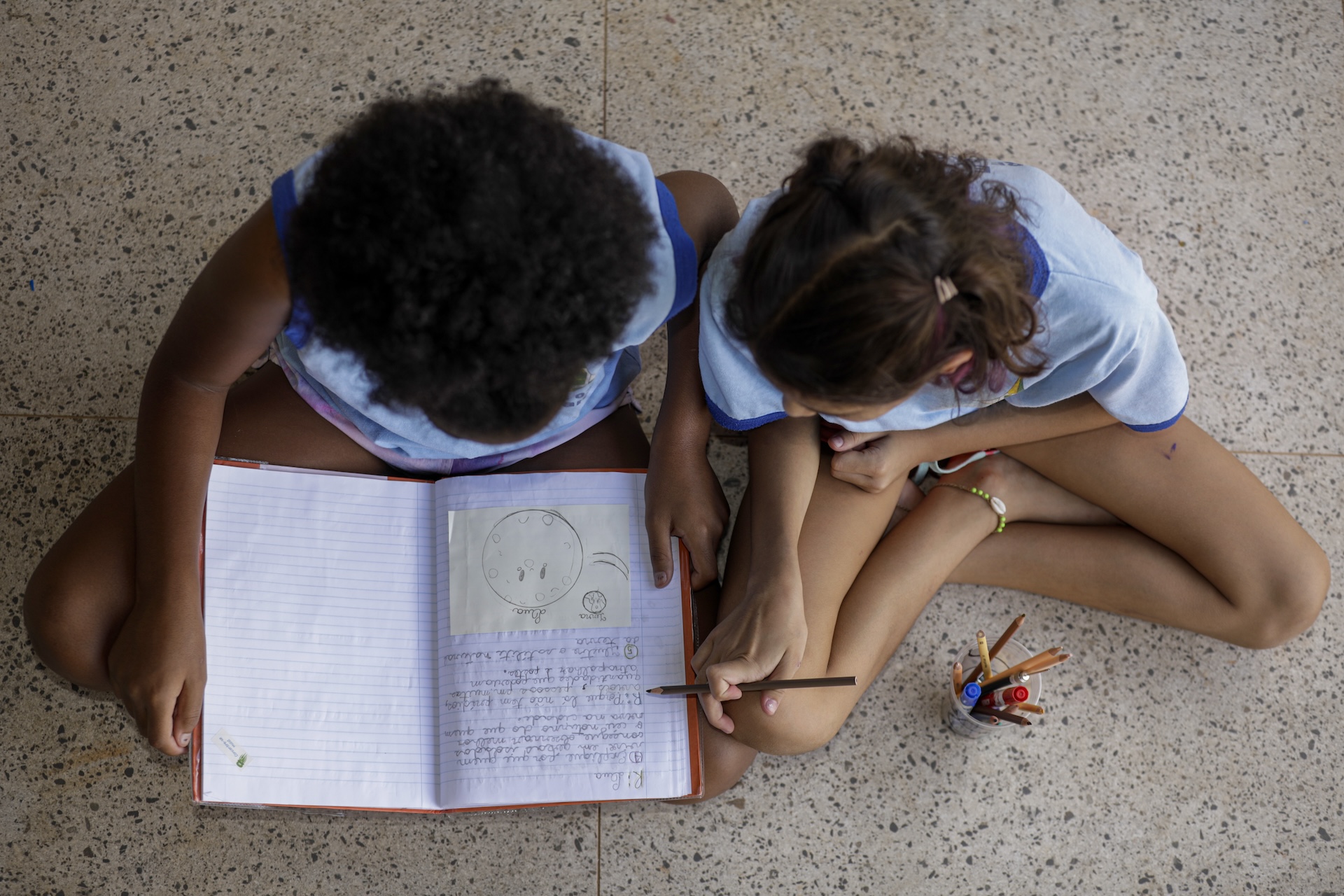Education

The Education Working Group originated from G20 member's concern about the large number of young people around the world who neither study nor work. The economic and financial crisis of 2008, the advance in the digitalization of economies, the challenge of meeting the targets of Sustainable Development Goal 4 (Quality Education for All) and, more recently, the Covid-19 pandemic have accelerated the need to coordinate efforts and promote adjustments and advances in education policies on a global scale.
About the WG
During the Brazilian Presidency, the Education Working Group will focus on three initiatives: valuing education professionals through international qualification measures; sharing material on sustainable development between educational content platforms; and launching the G20 Award for Community Engagement in Schools.
The world is facing a critical shortage of education professionals. The global deficit of teachers is estimated at 44 million. Demand and interest in the career are lower than necessary in most countries. On the other hand, the global peak of the number of children between the ages of 6 and 11 was reached in 2023. By 2029, the largest column of the global population pyramid will be between the ages of 12 and 16. These findings become even more concerning when the evidence confirms the irreplaceable role of teachers and schools in effectively achieving the global goal of universal quality education by 2030. The world needs to attract and retain more talented teachers. Although the regulation of educational professionals is almost always a task restricted to national governments, if not state and municipal networks, and therefore can vary greatly around the globe, it is still possible, through the G20, to make further progress in the scale, diversity and representativeness of people dedicated to education who are offered opportunities for additional qualification outside their country of origin as a motivational measure.
On the other hand, practically all the G20 countries now have digital platforms for sharing educational material with their networks, an additional way of supporting teachers and making up-to-date content available for use in classrooms. In recent years, the use, volume and quality of digital material on these platforms has grown - but they still have little to do with each other. At the same time, there has also been a rising global concern with tackling the climate emergency through a deeper concern with incorporating the concepts of sustainable development into educational practices. When consulted on the subject, the vast majority of teachers around the world today agree on the importance of addressing sustainable development in the classroom, from a wide variety of perspectives, but they still feel that their own preparation for conducting this debate is insufficient. For this reason, as this is relatively new material and of global interest, the G20 will seek bringing together the managers of national platforms so that a network can be formed which is capable of widening access to good practices, overcoming the barrier between the interest of teachers and students and the quality of the material available to them in order to advance this debate.
Finally, the G20's global outreach will be tested by launching the School Community Engagement Award. The award winners will sit alongside education ministers to bring to the political debate the context, reality and perspectives of those who work directly and on a daily basis with children and young people. The award aims to highlight practices that transcend the classroom walls, demonstrating that the school space has been, in many different contexts, an agent of positive transformation of their surroundings - from the integration of refugees to the promotion of family farming, from urban sanitation to immunization at the right age. The evidence also shows that the involvement of parents and communities improves student attendance and performance, reduces drop-outs and increases the transparency of school management
History of the WG
Conceived under the Argentinian presidency of the G20 in 2018, in a derived process from the Employment Working Group, the G20 Education WG has had the opportunity to produce, over the last few years, through questionnaires sent to countries and compiled with the support of international organizations, relevant general compendiums of good practices in education policy. Initially, the debates involved the search for an appropriate balance between policies that promote education as an essential right for global citizenship and those that see it as a vehicle for the productive transformation of economies, in order to overcome crises and situations of low growth. Then, with the Covid-19 pandemic, the WG also acted as the first stage for sharing the challenges faced by education systems around the world in setting up, on an emergency basis, remote teaching methods suitable for children and young people, as well as discussing the losses caused by the compulsory closure of schools and the measures capable of helping to recover learning.
The five years of interaction have already confirmed that the educational structures of the participating countries are diverse and that there are good practices developed in certain contexts with high potential of being replicated in others. Moreover, the impossibility of coming up with one-size-fits-all solutions has been realized. In the meantime, topics such as school-to-work transition, vocational education, early childhood education and the role of digital technology in education have been addressed and developed during the presidencies of Saudi Arabia (2020), Italy (2021), Indonesia (2022) and India (2023).